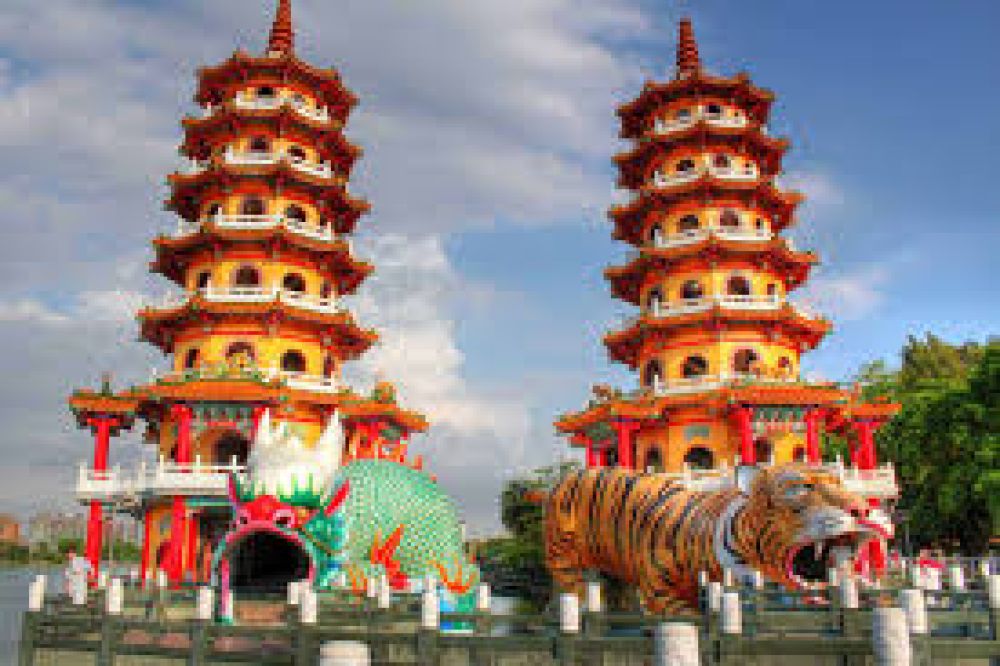

Lotus Pond is a scenic lake located in the Zuoying District of Kaohsiung, Taiwan. Known for its tranquil beauty and the traditional temples and pagodas that surround it, Lotus Pond has been a magnet for both local and international visitors for decades. This man-made lake is famous for its lotus plants and the vibrant ecosystem it supports.
The history of tourism at Lotus Pond dates back to the Japanese rule in Taiwan, when the pond and its surroundings were developed into a tourist spot. After Taiwan's retrocession in 1945, the area continued to attract tourists with its increasing number of culturally and historically significant structures.
Major landmarks such as the Dragon and Tiger Pagodas, the Spring and Autumn Pavilions, and the Confucius Temple contribute to the allure of this destination. The addition of these architectural marvels from the late 1950s through the 1970s enhanced the cultural value of the pond and solidified its status as a staple tourist attraction.
In recent years, the focus on eco-tourism and cultural experiences has seen a rise in popularity among tourists visiting Lotus Pond. Paddle boating, bird watching, and photography are some of the eco-friendly activities that guests can partake in while exploring the serenity of the lotus blooms and the wildlife that inhabits the area.
Culturally, the pond continues to serve as a backdrop for many festivals and events, the most notable being the annual Dragon Boat Festival, which draws spectators and competitors from around the world.
Additionally, the local government has invested in improving the infrastructure around Lotus Pond to accommodate increasing numbers of tourists, with better walking paths, information signs, and enhanced public facilities.
Tourists visiting Lotus Pond can expect a rich blend of historical, cultural, and natural attractions. Visitors are encouraged to journey through the area at a leisurely pace, experiencing the detailed artwork of the temples and the vivid natural landscapes. The evening brings a different atmosphere to Lotus Pond, as the temples light up, creating a reflection on the water's surface that is not to be missed.
Dining options surrounding the pond also offer an opportunity to taste local Taiwanese cuisine, while various souvenir shops provide mementos of the unique journey to Lotus Pond.
The tourism sector in Kaohsiung continues to innovate, seeking ways to sustainably manage the Lotus Pond area while enriching the visitor experience. Future trends may include interactive and educational tours that focus on the environmental significance of the lake, as well as the implementation of advanced technologies for enhancing the tourist experience without detracting from the site's natural and historical charm.
Whether it's for relaxation, cultural exploration, or a dive into the natural beauty of Taiwan, Lotus Pond in Kaohsiung offers a memorable experience for all who visit. From the breathtaking temples and pagodas to the life-giving waters of the pond itself, it's no wonder that this destination continues to captivate tourists year after year.